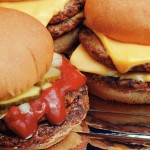 Part 2 of this series discussed how a neurotransmitter called dopamine is related to addictive behaviors, including addictions to foods (especially sugars and sweets). In addition, recent research has shown that overeating blunts the dopamine-controlled pleasure response to “feel good” foods, such as ice cream, cookies and baked goods. This means that the foods that once brought you pleasure will no longer trigger as great of a pleasure response, leading you to over-consume them and/or look for other foods to provide more pleasurable substitutes. Over time your brain’s reward/pleasure center becomes over-stimulated and eventually your body will react by down-regulating the pleasure response, making you to want to consume even more of these foods to achieve the desired effect. This leads to over-consumption of food, food addictions, cravings, binges and ultimately, weight gain.
Part 2 of this series discussed how a neurotransmitter called dopamine is related to addictive behaviors, including addictions to foods (especially sugars and sweets). In addition, recent research has shown that overeating blunts the dopamine-controlled pleasure response to “feel good” foods, such as ice cream, cookies and baked goods. This means that the foods that once brought you pleasure will no longer trigger as great of a pleasure response, leading you to over-consume them and/or look for other foods to provide more pleasurable substitutes. Over time your brain’s reward/pleasure center becomes over-stimulated and eventually your body will react by down-regulating the pleasure response, making you to want to consume even more of these foods to achieve the desired effect. This leads to over-consumption of food, food addictions, cravings, binges and ultimately, weight gain.
Here’s a simple analogy: you get together with a bunch of friends and head out to a rock concert. On the way to the show, you and your friends enjoy some nice conversation in the car. You walk into the concert and notice the noise level rising quickly – you are aware of thousands of people talking, whistling, yelling and getting hyped-up before the show. You notice that you suddenly have to raise your voice to communicate with your friends. Then the band comes out, music blaring; it seems really loud at first, but soon, this becomes the new “normal” and all seems good. However, once the show is over, as you and your friends are leaving, you notice that you have to practically scream at each other in order to hear one another. Your body has adapted to the high noise level and you must now talk much louder in order to hear.
This is exactly what happens when you over consume pleasure inducing foods. Your body gets used to the new level of stimuli and you must eat more or more-intense pleasure inducing foods to feel a difference.
This is not unlike what happens with drug abuse–many people that abuse drugs are trying to achieve the original “high” experienced during their first several trials with a drug; unfortunately, that’s impossible because the body has blunted the pleasure response due to exposure to the drug. This process often leads to using more of a given drug or trying different and stronger drugs.
The same thing happens in the case of highly pleasurable food–only with food it causes people to eat way beyond their capacity, crave the very foods that make them gain weight and then feel more and more out of control.
The solution to begin resolving addictive behavior for many people has to do with achieving proper neurotransmitter function using amino acid therapy, which is the subject of Part 4 of this series.
